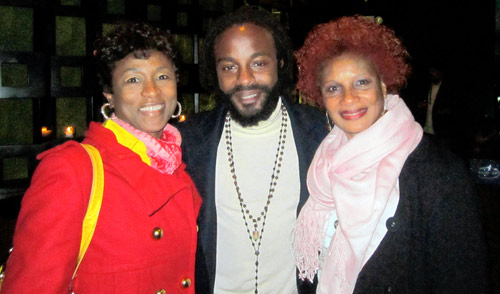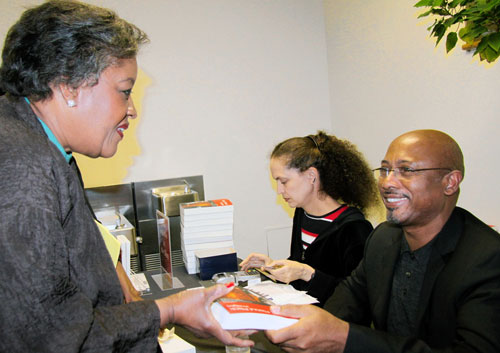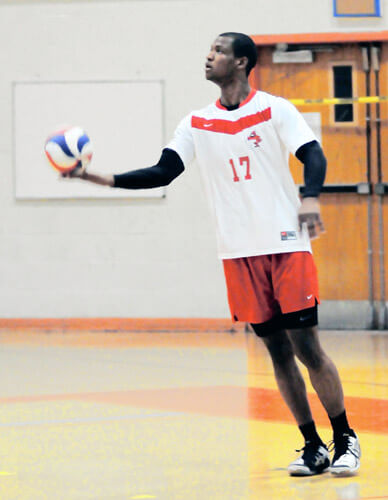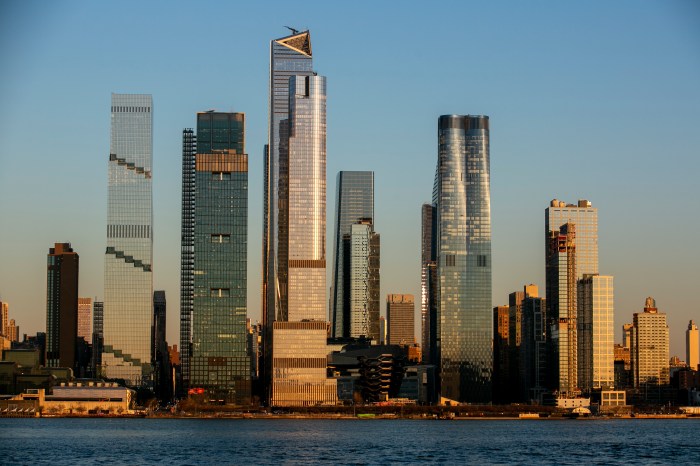Caribbean
Puerto Rico Governor Luis Fortuno says the Caribbean’s largest wind farm will be built in the U.S. territory in a bid to reduce the island’s dependence on oil.
Fortuno said the US$250 million project is financed by San Francisco-based Patten Energy Group and will feature 44 turbines capable of providing power to about 250,000 homes.
The Santa Isabela wind farm will start operating by next September and will generate up to 75 megawatt hours of energy as part of a 20-year deal with the state-owned Electricity Energy Authority.
The announcement comes a week after Fortuno announced that the Caribbean’s largest solar energy project will be built in Puerto Rico.
The U.S. territory relies in oil to generate 70 percent of its power.
Barbados
Cou Cou and flying fish, Barbados’ national dish, is still holding its own among the gastronomical giants of the world, according to the National Geographic book Food Journeys of a Lifetime.
Flying fish and cou cou landed third place from hamburgers from the United States at No 1 and ackee and fish from Jamaica.
Cou cou pairs perfectly with flying fish – once abundant but now over fished and scarce – which is a combination of cornmeal, okras, salt, butter and water.
Dominica
The Association of Caribbean Media Workers (ACM) has slammed Guyana President Bharrath Jagdeo over his decision to suspend the license of a private-owned television station even as a case relating to the station broadcasting defamatory commentary is engaging the local courts.
The ACM, which groups journalists and media workers from across the English, French, Dutch and Spanish-speaking Caribbean, issued a statement following its tenth biennial conference recently.
The ACM also took offence at Jagdeo’s description of Guyanese journalists as “vultures and carrion crows,’ noting it regarded the statement as “inflammatory, designed to endanger the lives of media practitioners.”
“We do not want to see a precedent set in the region by public officials, inciting violence against the media houses and professionals being allowed to get away with it,” the CMC said.
Jagdeo announced recently that the four-month suspension of the privately-owned television station would now begin on Dec. 1, after the regional and general elections on Dec. 28.
Haiti
Fourteen police officers and prison officials in Haiti will be tried in the death of at least ll inmates during a prison break, a United Nations representative said.
The trial is slated to begin this month said the representative.
The defendants face charges that range from murder and attempted murder to arson and aiding and abetting escape.
The trial stems from a prison break that took place in the south-western coastal town of Les Cayes on Jan. 19, 2010, one week after the massive earthquake killed an estimated 300,000 people.
A riot started when some of the 400-plus prisoners tried to escape because they were terrified of aftershock in the overcrowded prison.
Haitian police and UN peacekeepers from Senegal surrounded the building to prevent an exodus that occurred at the main penitentiary in downtown Port-a-Prince on the day of the earthquake.
Haitian police rushed the building and opened fire. U.N. police saw the bodies of 10 dead prisoners but more people are believed to have been killed and dozens more were wounded.
The investigation judge alleged that up to 22 people were killed and dozens more wounded.
Haiti
Haiti’s new prime minister and his Cabinet have taken office with the task of rebuilding the quake-devastated impoverished Caribbean country.
Garry Conille and his 16 ministers were recently inaugurated in a ceremony on the grounds of the National Palace.
Conille said Haitians have been suffering for “too long” under tents and tarps that have served as makeshift shelters since last year’s earthquake.
The government was installed five months after musician Michel Martelly was sworn in as president and two weeks after Conille was approved as prime minister.
Conille was an aid to Bill Clinton in the former U.S. president’s role as U.N. envoy to Haiti.
The delay in establishing as formal government has slowed reconstruction following the quake.
Jamaica
Jamaica is reporting a 40 percent drop in homicides over the past 15 months, but Prime Minister Bruce Golding (before demitting office) said crime is still at an unacceptable level.
He said 276 less homicides have been committed for the year, from 1,097 that occurred last year.
On the heels of that announcement came a United Nations report that cited Jamaica as having the highest homicide rate in the English-speaking Caribbean last year. The 2011 Global Study on Homicide said this stood at 52.1
St. Kitts and Nevis was next in line at 38.2, ahead of Trinidad and Tobago’s 35.2. The Bahamas was at 28.0, St. Lucia at 25.2, Dominican Republic at 24.9 and Dominica at 22.1. The lowest murder rates in the region were in Antigua and Barbuda at 6.8 and Haiti at 6.9.
St. Kitts
Deported St. Kitts drug kingpin Noel “Zambo” Heath was recently shot and killed. This is according to a report on WINN FM radio.
Heath was shot multiple times at his home on Cardina Avenue in the capital Basseterre and was rushed to hospital where he died.
“Zambo” was a well-loved community leader in the West Basseterre area and an ardent football supporter.
Heath was extradited to the United States in March 2006 where he pleaded guilty in the Federal Court to drug conspiracy charges. He had been listed as one of the U.S. DEA New York Field Division’s Top Ten Fugitives.
Heath fought against his extradition for over a decade before the U.S. Justice Department succeeded in securing his apprehension.
Described by federal officials as an “international drug kingpin” Heath, who was 57 years old, was sentenced in April 2007 to four years in prison. District Judge David Larimer gave him a light sentence citing his age, extended absence from his family and the certainty that he would be deported. He was released two years later and returned to St. Kitts in 2009.
Trinidad
The courts in Trinidad and Tobago continue to free alleged gang members who were arrested since the State of Emergency was declared on Aug. 21, 2011 by Prime Minister Kamla Persad-Bissessar.
Director of Public Prosecutions (DPP) Roger Gaspard said there was insufficient evidence to prosecute the men.
Out of the 249 charged, 203 have been freed by the courts after the DPP gave a directive to discontinue the matters.
The men were charged with being a member of a gang but police discovered that the Anti-Gang Act was only proclaimed on Aug. 15 this year and it was not illegal to be a member of gang before that date. The police had to build new evidence after that date.
Over the past two weeks, the arrests of gang members have been put on hold until the police fully understand the law.
Trinidad
Government is moving to stop the spread of HIV in Trinidad and Tobago by 2015.
This was revealed by Health Minister Dr. Fuad Khan, who said the government continues to put strategies in place to ensure this was achieved.
He said the government last year signed a five-year partnership with the United States to reduce the incidence of HIV/AIDS under the President’s Emergency Program for AIDS Relief.
Dr. Khan was at the time speaking at the launch of HIV/AIDS policies and the graduation ceremony for HIV tests and counselors at the Regency Hotel, Port of Spain.
He said the policies will provide guiding principles while fostering the creation of client care treatment protocols and codes of practice for the entire health sector and in particular Regional Health Authorities.
The health minister said the benefits of increased testing were significant since those living with HIV would be diagnosed at earlier stages of the disease, which will result in a timely referral to care and treatment.
Compiled by Azad Ali
























